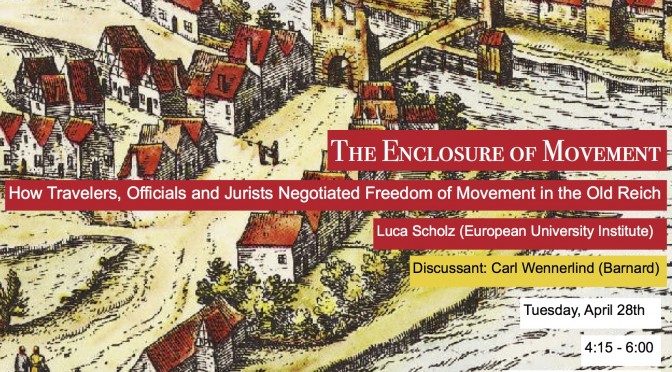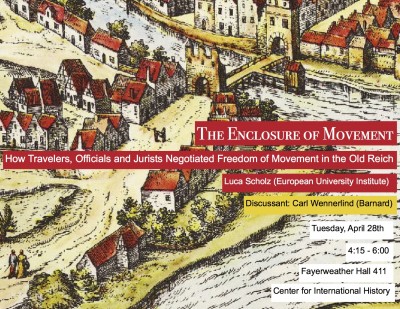The Center for International History, and the Department of Anthropology present
Roads, Race and The Making of India’s Northeastern Frontiers
Malini Sur (Western Sydney University)
Thursday, Oct 24
4:30pm
Sheldon Scheps Memorial Library
Room 457, Schermerhorn Extension
Columbia University
Abstract: This paper takes stories which surround an old trade a productive starting point to revisit British colonial cartographies in India’s north-eastern frontiers. I situate the first printed map of the Garo Hills (now located in India) and the construction of the Rowmari-Tura road (now divided between Bangladesh and India), in the gaps of British archives and conversations in Bangladesh’s remote border villages. By tracing the road’s contemporary material presence in Bangladesh to its early emergence in the form of a map in British India’s northeastern frontiers, I show how colonial endeavors re-ordered the region’s marshlands and hills as distinct political spheres in the 19th and early 20th centuries. Infrastructures of control—surveys and maps, road construction, repair and disrepair— transformed notions of territory, bodies and cosmologies to inscribe race. Furthermore, nature’s fury—forest fires and earthquakes—intersected with political forces to pull people apart. I suggest that an ethnographic reading of old roads and maps that continue to connect regions, which states still govern as unruly terrains, foreground the changing terms of contemporary violence along the India-Bangladesh borderlands.
Bio: Malini Sur is a Senior Research Fellow at the Institute for Culture and Society and teaches anthropology at Western Sydney University. Her research addresses three lines of inquiry – agrarian borders, urban space and the environment. She investigates these areas ethnographically and historically, and with keen attention to visual representation. She has conducted fieldwork in Bangladesh and India, and with South Asian asylum seekers in Belgium.



